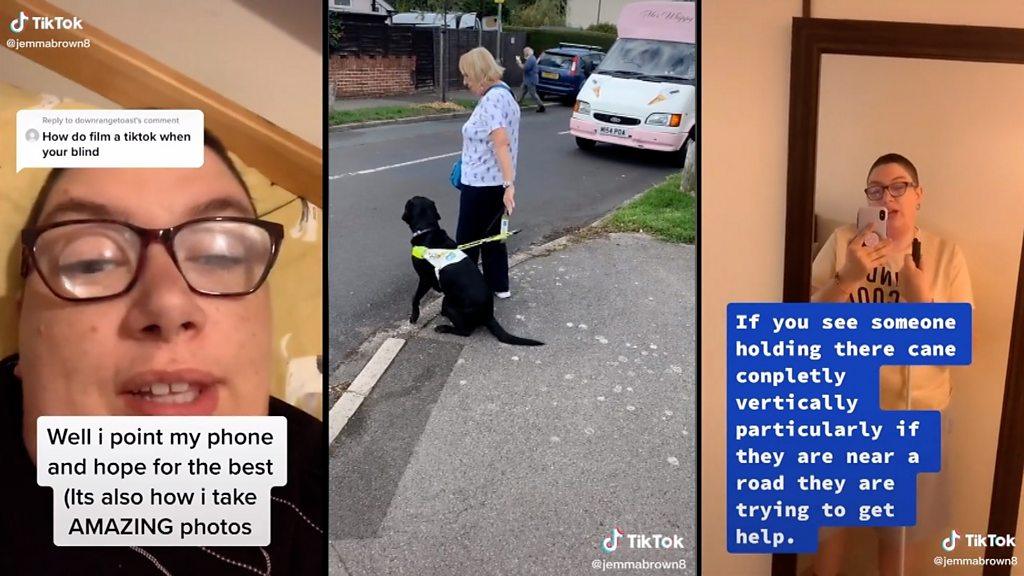Lockdown 'even harder' for new mum with disabilities
- Published
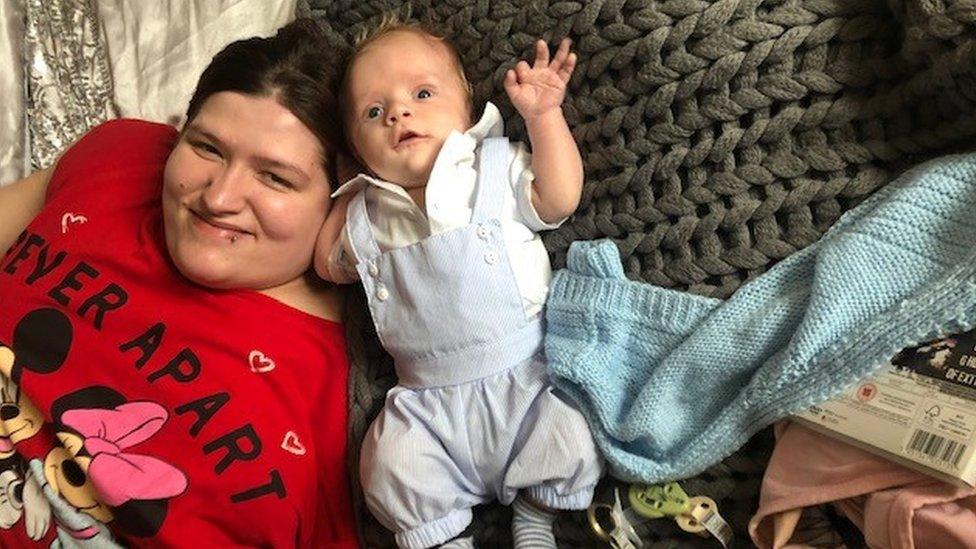
Bethany Fanthom's son Freddie was born on 11 March last year
A new mum who is deaf blind and has barely left her home with her baby during lockdown wants more support for disabled people's mental health.
Bethany Fanthom, 27, gave birth to Freddie on 11 March 2020.
She says Covid restrictions have cut off most of her support and leave her feeling isolated as she adapts to motherhood.
Charity Sense has reported fears of a "mental health crisis" in disabled people, citing a spike in loneliness.
Ms Fanthom, from Halesowen, West Midlands, communicates with sign language and has tunnel vision - a loss of her peripheral view that makes it hard to watch her baby son while doing household jobs such as cooking and cleaning.
While she lives with her fiancé, his work keeps him away from the home most of the day. Motherhood, she said, had left her feeling alone, with no one to speak to in a similar situation.
"I've not been able to meet any other moms with disabilities, nor have I been able to take my son on any play dates or outings," she said.
"Feeling isolated has had a huge impact on my mental health and physical health as I am forever reliant on my family for all my social needs."
She added she "wouldn't know where to start" with meeting other young mums or deaf blind parents online.
Ms Fanthom's younger sister Lauren said: "It's hard enough for people with communication. [Bethany] has a barrier, and is learning every day how to be a mom and coping with a disability."
She told the BBC how Ms Fathom had stopped going out alone after being abused in a supermarket for going the wrong way. Her tunnel vision meant she was unable to see the arrows on the floor.
"It really knocked her confidence. She didn't know what to do and panicked - she hasn't gone out alone since."
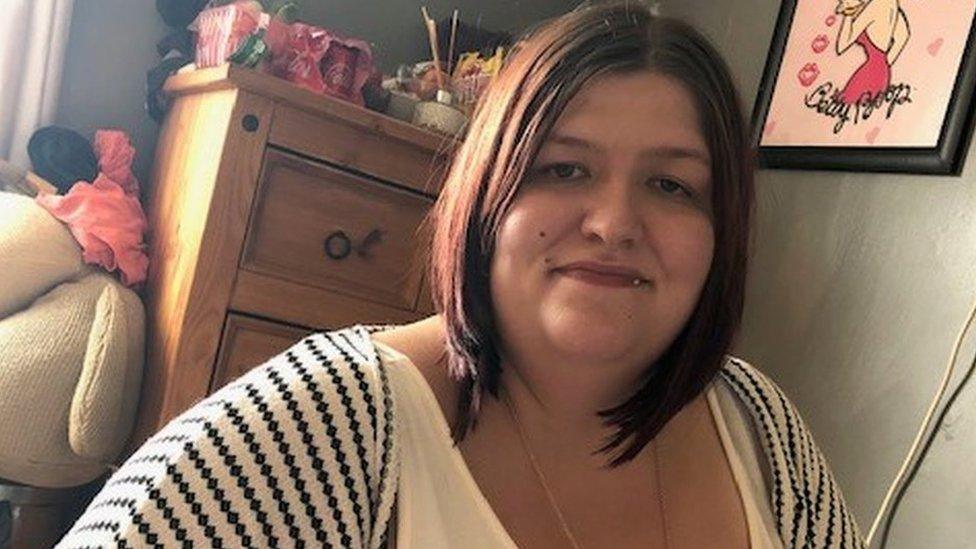
Ms Fanthom said she has struggled with her mental health in lockdown, with parenting and her disability causing her to feel lonely
Covid restrictions have amplified difficulties.
Ms Fanthom said: "I have constant worry, I'm very worried about the virus. My mental health did get worse with the unknown, people dying around us.
"It's a scary time for us all, it's affected everyone, but it's even harder for people with disabilities."
She visited her GP who prescribed anti-depressants, which, combined with her "cheeky and mischievous" son, she said, kept her busy and "feeling a lot better".
'Felt forgotten'
Sense is calling on the government to do more to support disabled people who the charity says have been disproportionately affected by the pandemic.
"Many disabled people were already experiencing high levels of social isolation and loneliness before the pandemic, and the last year has made the situation much worse, raising fears of a mental health crisis," the charity's chief executive, Richard Kramer, said.
"Throughout the pandemic the needs of disabled people have been overlooked, and they have often felt forgotten."
Ms Fanthom agrees. She wants to see an increase in dedicated mental health support for people living with disabilities, and also more awareness from members of the public.
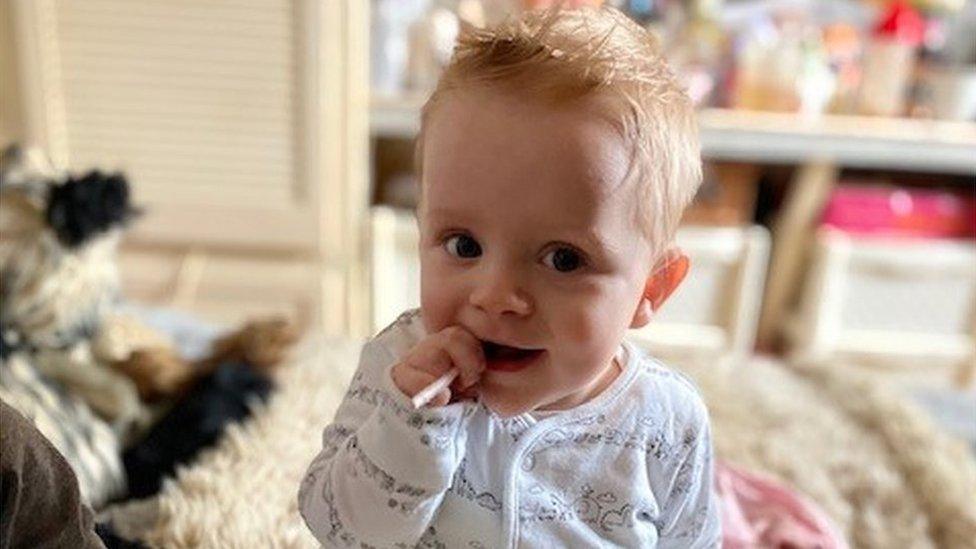
Freddie hasn't seen much of the outside world and has only met his immediate family
The new mum has had to rely on her family for support looking after Freddie, but she hopes once lockdown ends, other networks will open up.
She is already teaching her son to sign, and says when restrictions are eased, she can get support from Guide Dogs UK who will help train her dog, Pudsey, to guide her with Freddie's pushchair.
He will turn one on 11 March, and barring trips to a local supermarket, he has spent his whole life so far in the couple's one-bedroom bungalow.
"I worry Freddie will struggle," Ms Fanthom said. "He maybe goes out once a week and he's only used to seeing the bare minimum."
The family had "lots of making up to do," she said, and were looking forward to restrictions easing, drawing up a list of activities they cannot wait for the baby to experience, from swimming to a trip to the beach and Peppa Pig World.
"I'm feeling OK now I can see [an end] date," Ms Fanthom said.
"I hope lessons will have been learnt should we face a situation like this again in the future and things will be put in place so that our mental health is looked after as well as our physical health has been."

Follow BBC West Midlands on Facebook, external, Twitter, external and Instagram, external. Send your story ideas to: newsonline.westmidlands@bbc.co.uk, external
- Published11 February 2021
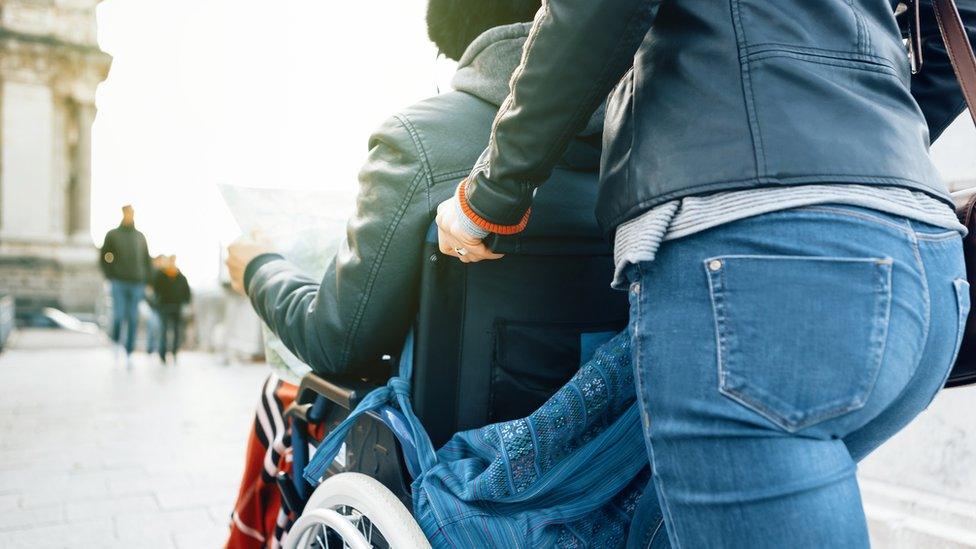
- Published6 February 2021
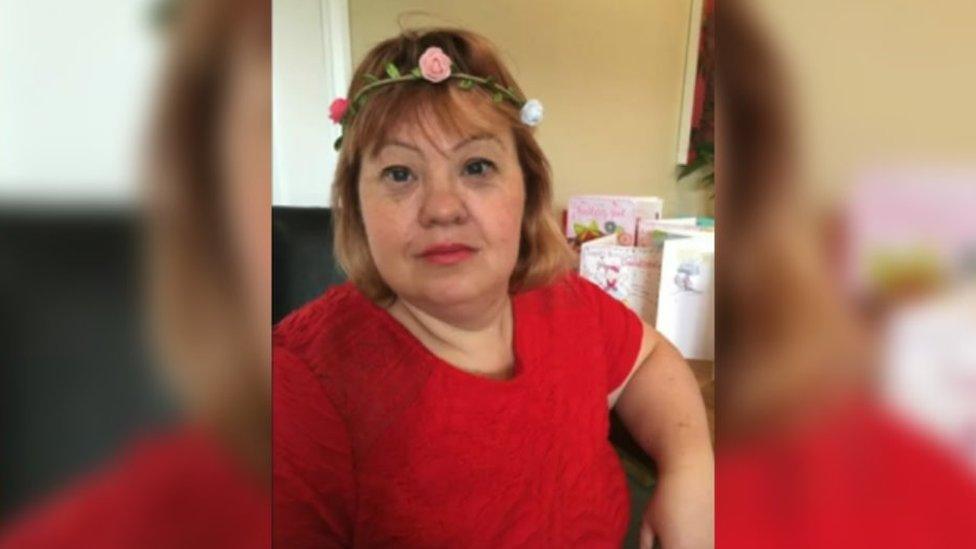
- Published24 January 2021
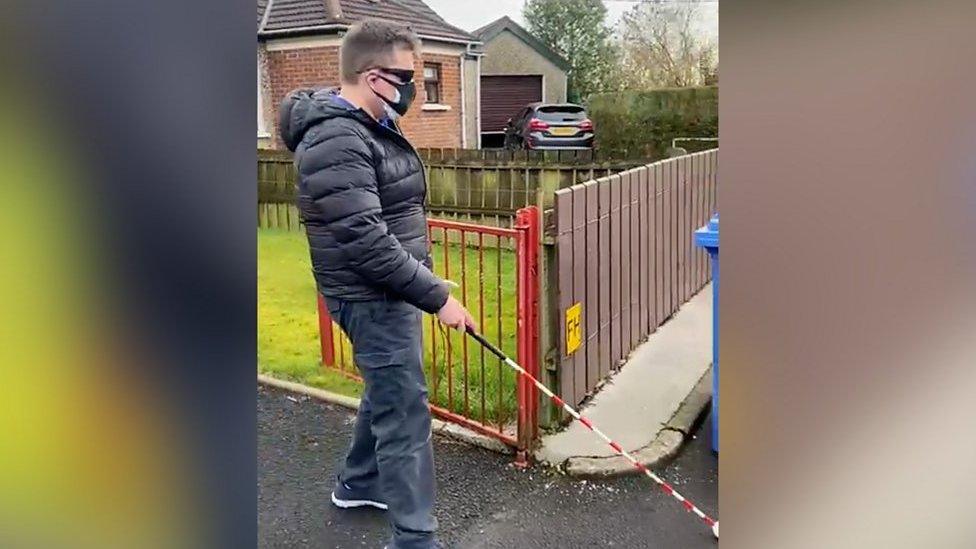
- Published17 November 2020
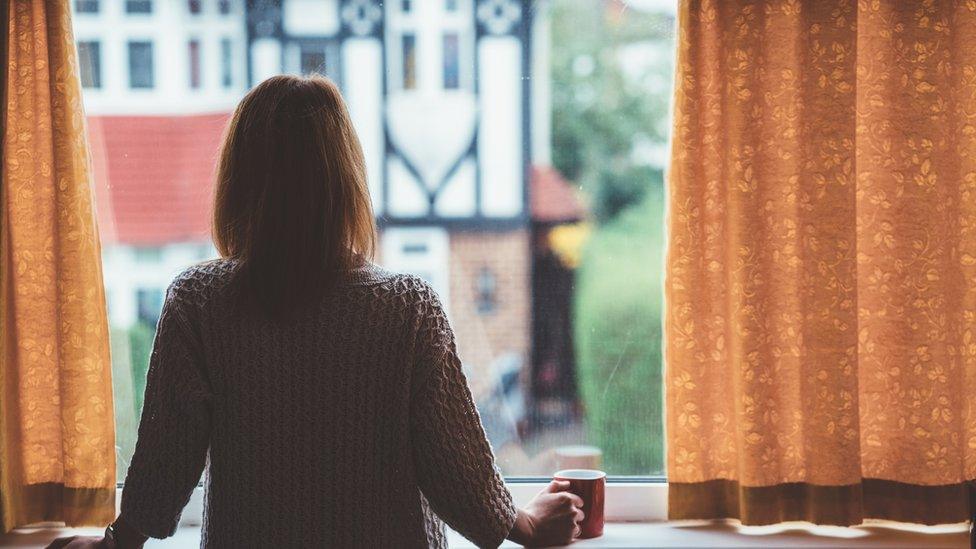
- Published10 November 2020
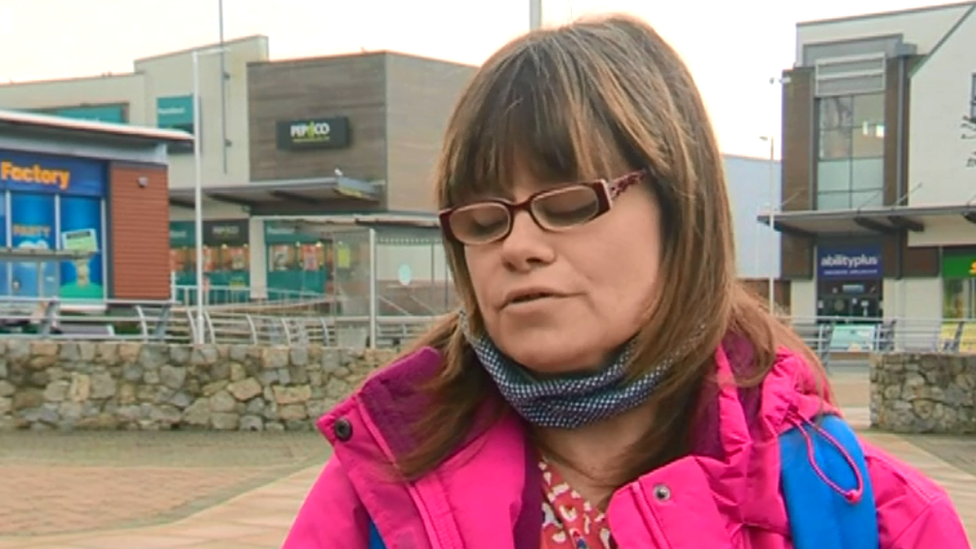
- Published8 September 2020
